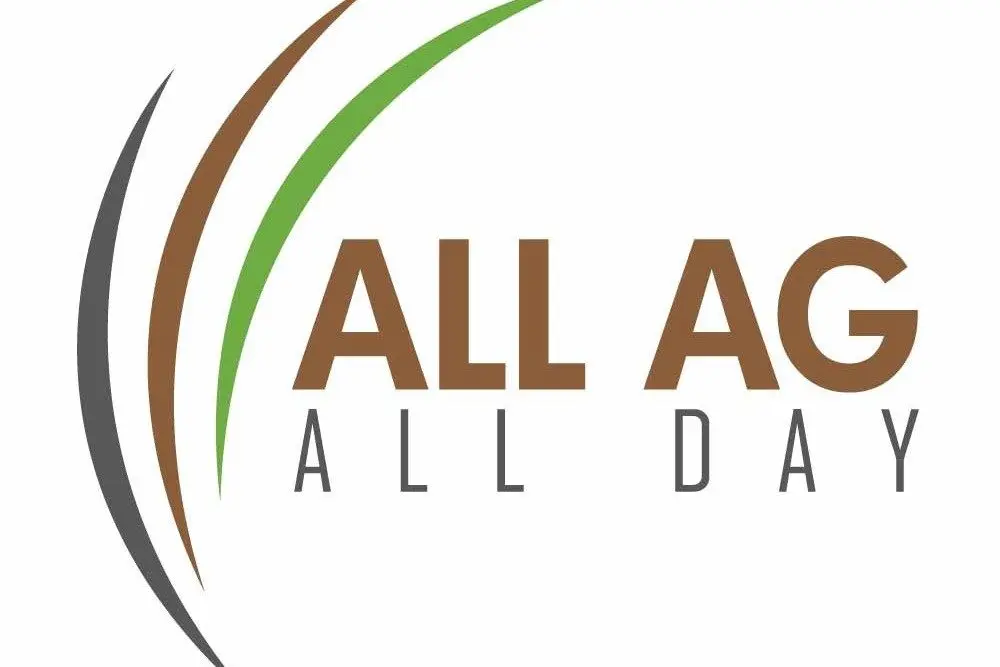
All Ag, All Day is the nation's only full-time farm radio station with studios in Floydada and Nashville, TN (www.AllAgNews.com)
Trump Soybean Talks Compete With China’s Record Buys
LUBBOCK, TX – U.S. soybean growers are watching closely after President Trump announced he will meet with China’s President Xi in four weeks, with soybeans expected to top the agenda. The news briefly lifted futures prices, but any U.S. export rebound faces steep competition after China booked record shipments from Brazil and Argentina in recent months.
Chinese customs data show that soybean imports reached 12.28 million metric tons in August, the largest volume on record for August, with Brazil supplying the bulk. July imports also reached a record high, driven by strong shipments from Brazil. Argentina has gained ground as well, with Chinese buyers securing 20 cargoes—roughly 1.3 million tons—after Buenos Aires suspended its export tax. Bookings from Argentina and Uruguay for the September–May export window already exceed 2.4 million tons. By contrast, U.S. sales to China have stalled, with no new-crop bookings secured this fall amid ongoing tariffs.
The American Soybean Association has urged the White House to remove Chinese retaliatory duties and secure concrete purchase pledges, citing the financial strain on farms. Analysts say Trump’s push could revive discussions, but without tariff relief or binding purchase commitments, China may continue favoring cheaper South American supplies.
Farm-Level Takeaway: Trump’s upcoming talks raise hopes for U.S. soybeans, but China’s record purchases from Brazil and Argentina show America’s market share remains under heavy pressure.
**********
New Drug Targets Devastating Screwworm Threat In Cattle
NASHVILLE, TN – Cattle producers facing the destructive New World screwworm now have a new tool to protect their herds. The parasite, which causes severe infestations and threatens livestock health and producer livelihoods, prompted the U.S. Food and Drug Administration to grant conditional approval for Dectomax-CA1. The doramectin-based injectable prevents and treats screwworm larvae, providing 21 days of reinfestation protection while further effectiveness studies are completed.
The conditional approval process allows immediate availability because screwworm poses a life-threatening risk, and few treatment options exist. Dectomax-CA1 shares the same active ingredient as the fully approved Dectomax used against other cattle and swine parasites, and safety standards, withdrawal times, and residue warnings remain the same. The drug will be sold in 250 mL and 500 mL bottles, with labeling covering both original Dectomax and Dectomax-CA1 uses. The FDA emphasizes the careful use of this product to minimize resistance risks, advising producers and veterinarians to use it only when necessary as part of an integrated parasite management strategy.
Farm-Level Takeaway: A conditional FDA approval provides producers with a necessary tool against screwworm, but stewardship will be crucial to maintaining long-term effectiveness.
**********
Farm Bill Expiration Creates Uncertainty For Rural Programs
LUBBOCK, TX – The 2018 Farm Bill officially expired on September 30, 2025, leaving farmers, counties, and rural residents facing uncertainty as Congress works on a replacement. According to Owen Hart with the National Association of Counties, while core programs like crop insurance and Inflation Reduction Act conservation funds will continue, many smaller initiatives and rural development authorities have lost their legal footing. Counties rely on Farm Bill programs to support broadband, water infrastructure, and food assistance, making the lapse a serious concern.
The Institute for Agriculture and Trade Policy warns that without reauthorization, dozens of programs serving farmers and communities—from the Conservation Reserve Program to rural cooperative development grants—are in jeopardy. If Congress fails to act by January 1, 2026, the nation reverts to a permanent law from the 1930s, requiring the USDA to purchase commodities like dairy at outdated, high prices. This would drive up milk costs for consumers and county institutions alike. Lawmakers are considering a “skinny Farm Bill” to address gaps, but without new legislation, local USDA offices and essential nutrition programs could face disruptions as early as the new year.
Farm-Level Takeaway: The Farm Bill lapse puts smaller farm and rural programs at risk, while crop insurance and significant conservation funding continue. Producers and counties need swift action to avoid broader fallout.
**********
China’s Imports From U.S. Drop Sharper Than Brazil
NASHVILLE, TN – China’s agricultural imports are down overall in 2025, but U.S. exports have suffered the steepest decline, according to ag economists at the University of Tennessee Institute of Agriculture. Total Chinese imports of farm and related products fell 7.5 percent year-over-year through August, dropping from $157 billion in 2024 to $145 billion in 2025. The slowdown is even sharper in volume terms, with import quantities down nearly 12 percent, reflecting weaker demand rather than price-driven changes alone.
For U.S. farmers, the pullback has been particularly painful. Chinese imports of American agricultural products and related goods declined from $20 billion in 2024 to $14 billion in 2025, representing a loss of more than $5 billion, or 27.5 percent. The decline accelerated after March, highlighted by China’s absence from the U.S. soybean market this season. Brazil also experienced lower sales, down 15 percent from the previous year, although its shipments rebounded mid-year and in some months surpassed 2024 levels. Economists note that Brazil’s recovery suggests stronger seasonal positioning and competitive advantages, while U.S. exporters face deeper challenges.
Farm-Level Takeaway: U.S. agricultural exports to China have declined sharply in 2025, with soybeans being the most significantly impacted, while Brazil is regaining ground due to a mid-year demand recovery.
**********
Southern And Appalachian Farmland Values Post Broad Increases
NASHVILLE, TN – Farm real estate values across the Appalachian, Southeast, Delta, and Southern Plains regions posted notable gains in 2025. In the Southeast, Florida cropland climbed to $8,150 per acre, up 3.9 percent, while Georgia rose 4.4 percent to $5,830 per acre. North Carolina cropland averaged $6,450, up 7.8 percent, one of the most substantial gains nationally.
In the Delta states, Arkansas cropland increased 2.5 percent to $5,280 per acre, while Mississippi rose 3.3 percent to $5,790 per acre. The Southern Plains saw moderate growth, with Oklahoma cropland at $3,570, up 2.5 percent, and Texas land at $4,210, up 3.4 percent. Pasture values also gained, with Texas leading at $2,470 per acre, up 3.6 percent.
Farm-Level Takeaway: Farmland in the South is appreciating steadily, reflecting the strength of the poultry, cotton, and cattle industries, although drought remains a long-term risk.




